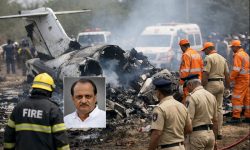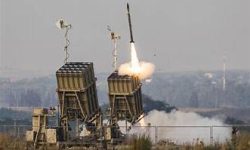
U.S. Supports Peace Efforts Amid Deadly Border Clashes
Secretary of State Marco Rubio announced that American diplomats have arrived in Kuala Lumpur, Malaysia, to help facilitate cease-fire negotiations between Thailand and Cambodia, as deadly fighting continues along their shared border.
The conflict, which started last week, has already claimed the lives of at least 35 people and forced hundreds of thousands to flee. Talks are scheduled to begin Monday in Malaysia’s capital, with both U.S. and Chinese officials expected to participate.
President Trump Pushes for Peace, Ties Trade to Cease-Fire
President Donald Trump confirmed on Sunday that he had spoken to leaders of both countries and warned that no new trade agreements with the U.S. would move forward unless hostilities end immediately. He also reminded them of his August 1 deadline for trade deals with 12 nations, including Cambodia and Thailand — threatening 36% tariffs on imports if no deals are reached.
“We want this conflict to end as soon as possible,” Secretary Rubio said from Washington late Sunday.
He also stated: “President Trump and I are actively communicating with both sides and closely monitoring the situation.”
Tensions High as Fighting Intensifies at Border
While peace talks are set to begin, fighting continued early Monday, with explosions heard before dawn near the disputed border. According to Lt. Gen. Maly Socheata from Cambodia’s Defense Ministry, Thai forces fired into ancient temples claimed by both nations, launching airstrikes and rocket attacks starting around 3 a.m.
Thailand’s Foreign Ministry has not yet responded publicly. However, Thailand’s acting Prime Minister, Phumtham Wechayachai, expressed deep skepticism before departing for the talks:
“We don’t believe Cambodia. Their actions show a lack of sincerity.”
Civilians Trapped and Terrified: On-the-Ground Voices
In Cambodia’s Oddar Meanchey Province, residents reported nonstop explosions since early Monday. Ly Nam, a local farmer, described the worsening violence:
“It’s two or three times worse than yesterday. I’m hiding in a trench. We’re suffering. We don’t even have enough food.”
Across the border in Thailand’s Surin Province, Siriwut Wongcharoen, a local official, said shells were falling heavily:
“It’s much more intense than before.”
The fighting comes after months of growing tensions over contested land. In Cambodia’s Siem Reap, near the sacred Angkor Wat temple complex, many fleeing families have taken refuge, while others pray at religious sites for peace.
U.S., China Join Talks in Kuala Lumpur
The United States and China — both major global powers with influence in Southeast Asia — are now part of the diplomatic effort. China’s top foreign policy advisor, Wang Yi, will join the talks alongside Rubio.
-
Thailand is a long-standing military ally of the United States, regularly hosting joint exercises with American forces.
-
Cambodia, on the other hand, has grown closer to China, even hosting a naval base funded by Beijing.
Both countries often try to balance relations between the U.S. and China, rather than fully side with either.
Why This Cease-Fire Matters
The current death toll has already surpassed the last major border clash between the two nations (2008–2011), which killed 34 people. With ancient cultural sites under attack and rising civilian casualties, the need for peace is urgent.
The presence of high-level diplomats from the U.S. and China at the negotiation table increases pressure on both sides to reach a resolution quickly.
Final Thoughts: A Global Push for Peace
As the cease-fire talks begin, all eyes are on Kuala Lumpur, where global diplomacy may be the only path to ending the violence. The U.S. has made it clear: peace is a prerequisite for economic cooperation.
“We’re deeply engaged. This must stop,” said Secretary Rubio.
✅ Key Points Summary
-
U.S. diplomats, led by Secretary Marco Rubio, are in Malaysia for cease-fire negotiations.
-
President Trump has linked trade deals to a halt in the fighting.
-
At least 35 people killed, and hundreds of thousands displaced.
-
Fighting continues, with temples under attack and civilians sheltering in trenches and bunkers.
-
China and the U.S. both join talks, adding diplomatic weight.









